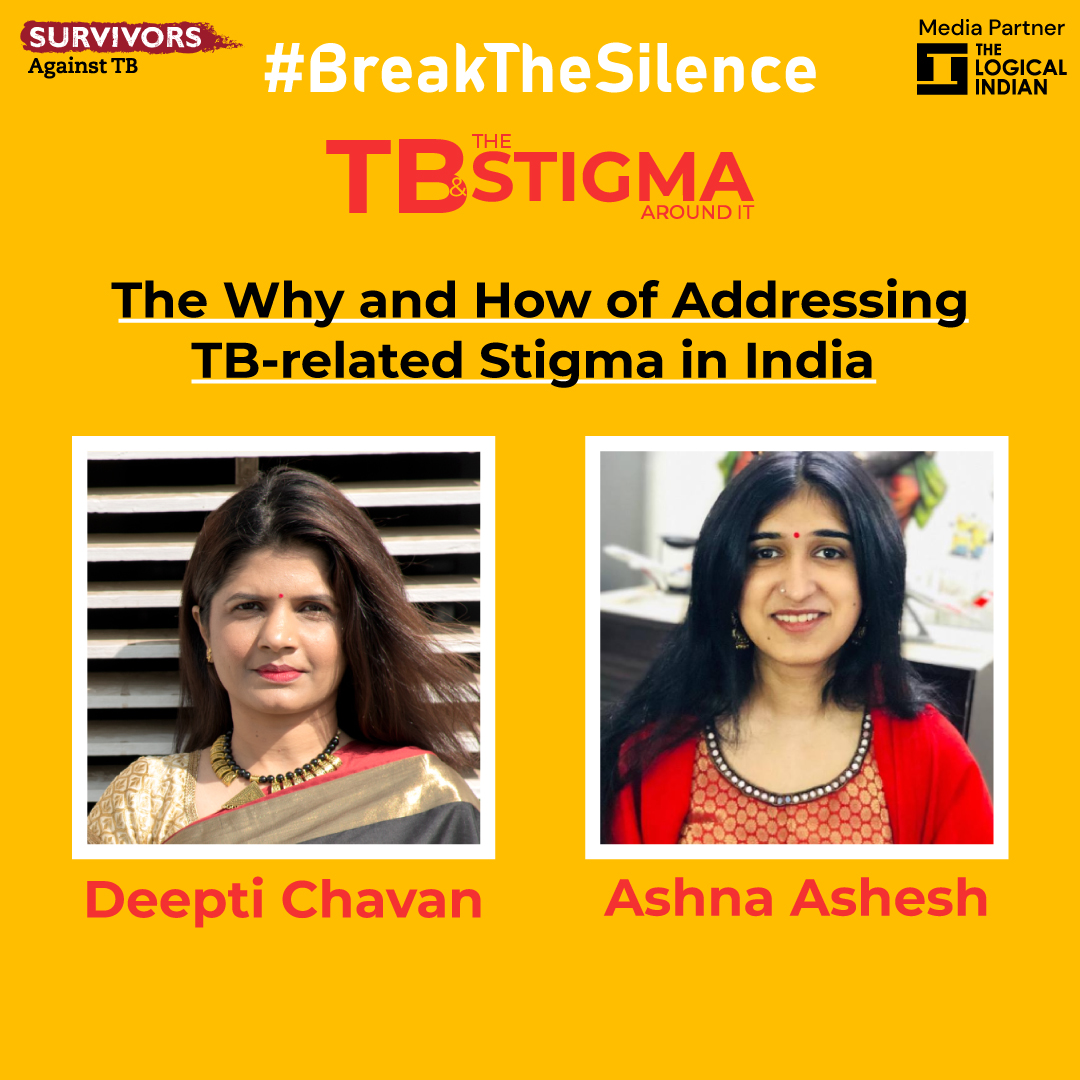
Image Credits: Survivors Against TB
The Why And How Of Addressing TB-Related Stigma In India
Writer: Ashna Ashesh
Ashna Ashesh is a lawyer and public health professional. She is an MDR-TB survivor and associated with Survivors Against TB - a collective of survivors, advocates and experts working on TB and related comorbidities.
India, 28 March 2022 3:34 AM GMT | Updated 4 April 2022 2:10 PM GMT
Creatives : Anusha Ramesh |
A highly motivated individual trying to broaden her artistic pursuits by integrating creative thinking with writing. Current areas of interest include design studies, illustration and branding.
Writer : Deepti Chavan
Deepti Chavan is a patient advocate and MDR-TB survivor. She is associated with Survivors Against TB - a collective of survivors, advocates and experts working on TB and related comorbidities
Tuberculosis or TB related stigma heavily impacts TB affected individuals and their families in multiple ways.
Long before COVID-19, one of India's severest health crises was Tuberculosis or TB. India has the highest number of TB cases globally. While TB can happen to anybody, the social stigma that accompanies it shows that society still harbours misgivings that TB is the affected individual's fault or divine punishment for bad behaviour or that TB spreads by touch.
At the heart of stigma is a constant blaming and dehumanisation of those affected that creates an environment to feed discrimination against the TB affected individual. Society justifies treating an individual this way by claiming a fear of infection or self-protection.
This is not just inhuman but also incorrect because not all forms of TB are infectious, and TB is nobody's fault.
Yet, TB affected persons suffer doubly - due to TB and the stigma attached to it. Affected persons who are women or from the LGBTQIA++ community are even more likely to be stigmatised.
TB related stigma heavily impacts TB affected individuals and their families in multiple ways.
Stigma from society or social stigma and discrimination isolate the affected individuals. Some face stigma in workplaces, costing them their jobs. Some are abandoned by their families. Others reveal that health providers stigmatise them as well, refusing on occasion even to touch them for the purpose of physical check-ups. Families of affected individuals may also be ostracised and left without community support in their time of need.
Stigma causes affected individuals to blame themselves for their illness and struggle alone with feelings of guilt, shame, and self-hatred.
The isolation and feelings of guilt and shame often lead to depression and anxiety in affected persons.
At a time when any human being would need support to struggle with a deadly illness like TB, what does society give them? Blame? Stigma? Discrimination?
It is no surprise then that in the absence of supportive environments, it's harder for affected individuals to even disclose they have TB and seek treatment for the same. This is harmful to those affected but also damages our public health goal of eliminating TB because, left untreated, TB can spread to others in the community.
So, it is important for the health of the affected person and society as a whole that we eliminate TB related stigma urgently.
But how do we do this?
Studies have shown that even when people are aware of how TB spreads, it does not stop them from discriminating against TB affected persons.
Thus, while increasing public awareness about TB is important, it alone is not enough. Stigma elimination in TB needs to be a layered process addressing stigma at the level of public health policy, the community, and the individual.
At the level of policy, we need to move away from the highly clinical approach to TB care to an inclusive person and community-centred one. It is not enough to train future and current health providers on how to treat diseases only. Diseases exist in people, and people deserve dignified care.
Health providers should be trained to treat these people with care and dignity. Providing stigma-free care needs to be taught as part of the medical college curriculum. Further, all health personnel involved in TB care, including pulmonologists, should be trained periodically on how to provide stigma-free care and how to counsel families or the treatment supporter/caregiver in supporting the patient and not stigmatising them.
The affected individual's family and treatment supporter/caregiver is an important support system to the individual. Families and treatment supporters need to be counselled by health providers on infection control and how not to stigmatise the patient. Communicating that not all forms of TB are infectious and that the infectious cases are also no longer so just a few weeks into treatment is critical to address the unfounded fears of infection.
Further, the government ought to have multilingual awareness campaigns directed at families and treatment supporters/caregivers, stressing that the fear of infection is unfounded and impacts TB affected individuals adversely. The campaigns should also educate the target audience on how best to support the TB affected individual.
Additionally, any form of stigma or discrimination, be it in the healthcare setting, workplace, or the community, need to be punishable by law to protect the rights of affected persons. To that effect, anti-discrimination legislation for TB, along the lines of HIV, is a good starting point.
The National TB Elimination Programme also needs to engage with, and harness learnings from the lived experiences of TB survivors to inspire and help those affected by TB to not self-stigmatise and address stigma at the individual level.
Where stigma persists, TB thrives, threatening the health of the individual and the whole. Addressing stigma requires a change in policies, in law, and a change of hearts because alone, we are powerless against the tyranny of this disease. But as our struggle with COVID-19 has shown us, together, there is hope, hope for a stigma-free and TB-free India.
Bio: Ashna Ashesh is a lawyer and public health professional, and Deepti Chavan is a patient advocate. Both are MDR-TB survivors and associated with Survivors Against TB - a collective of survivors, advocates and experts working on TB and related comorbidities.
 All section
All section














